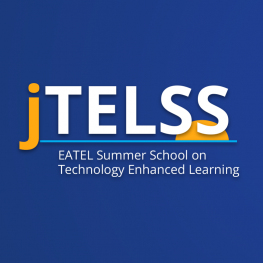Speakers
Nardie Fanchamps
Open University of the NetherlandsStart
13/05/2025 - 17:30
End
13/05/2025 - 19:00
Self-producing music with an impact on computational thinking
Tuesday 13/05 17:30-19:00h
Main hall
Session Description
Computational thinking (CT) can be developed in several ways. Well-known examples are plugged-in and unplugged applications like programmable robots or SmartGames that focus primarily on the (combined) usage of visual, textual, or tangible modality. Less obvious are applications where CT development can be established via auditory modality. Reasoning from such different contextual perspective, it is interesting to discover whether self-creation of electronic music influences CT development and what added value can be attributed to creativity. The underlying rationale is that the application of music software has measurable effects on CT development, especially with respect to invoking and using auditory modality. Applied in this way, technological applications for producing music shed light on explicit differences in applicability, understanding, awareness, conception, creativity and intended added value for revealing new possibilities for CT development.

